
Most Americans expect President-elect Donald Trump to do a good job upon his return to the White House next month (54%) and a majority approves of how he’s handling the presidential transition so far (55%), according to a new CNN Poll conducted by SSRS.
Trump won the presidency last month amid broad disapproval of President Joe Biden’s handling of the job and deeply negative feelings about the state of the country and the economy. Almost 7 in 10 Americans in the new poll think Trump will be able to bring change to the country (68%), though only about half of Americans (48%) say they think it will be change for the better.
The findings suggest the president-elect has earned a honeymoon period with the public as he prepares to return to the White House after being voted out four years ago amid broadly negative approval ratings of his own. But the poll finds positive sentiment toward Trump often trails the level that greeted other recent incoming presidents, even when he outperforms his own previous transition numbers.
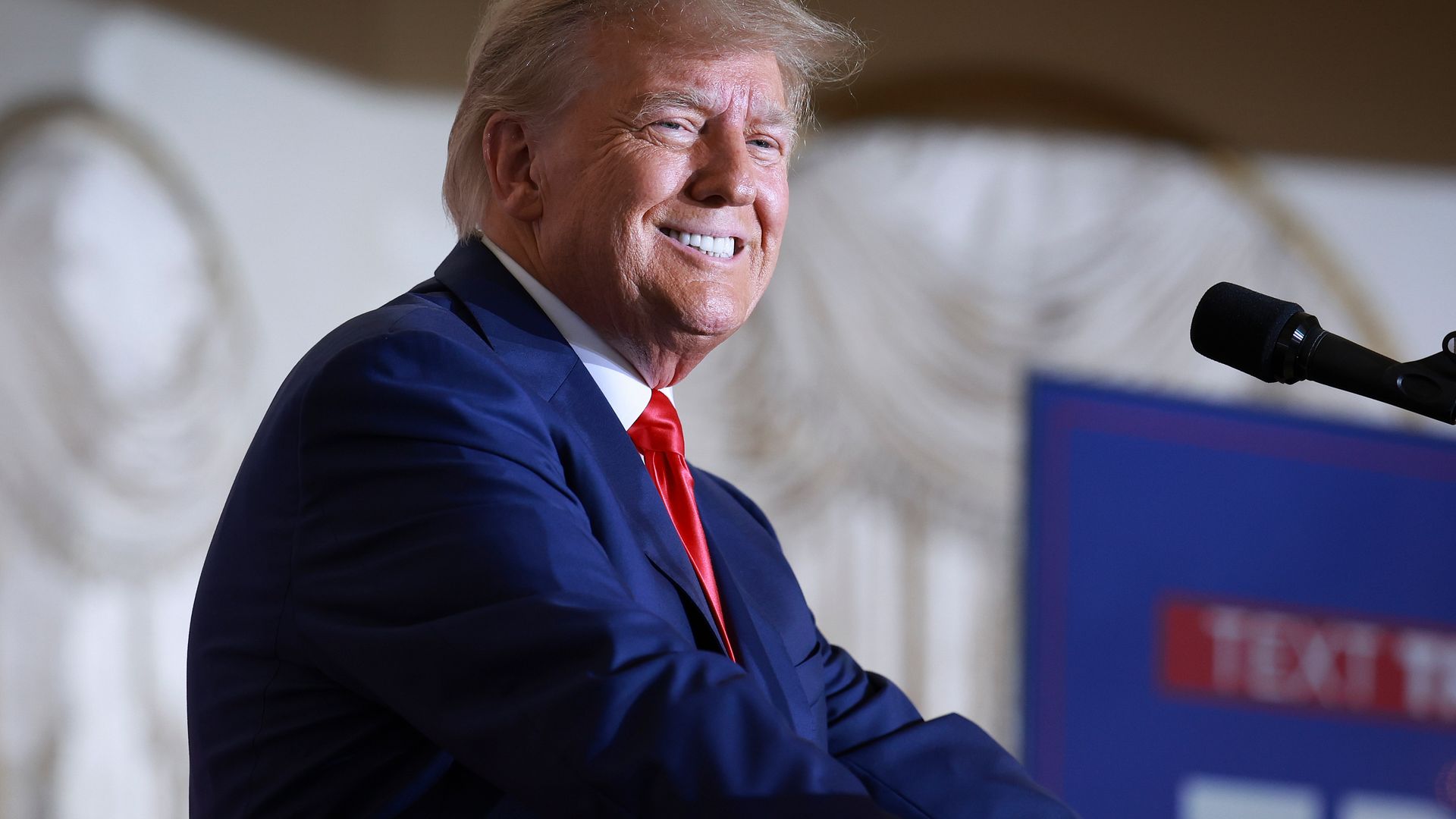
The country’s mood appears to have lifted somewhat following Trump’s win, at least in part due to the type of shifting partisan sentiments often seen in the wake of elections where the presidency changes partisan hands. Most overall still say that things in the country are going badly (61%), but the share who say things are going “very badly” stands at just 15%, the lowest in CNN polling since May 2018. The 38% who say things in the country are going well is the highest since December 2021.
That change has not come uniformly across party lines. Republicans have grown more positive about the state of the country post-election: 30% say things are going well now, up from 14% at the start of 2024 and higher than at any point during Biden’s time in office. Independents are also more bullish on the country’s direction: 43% say things are going well, 56% badly. That’s the largest share of independents to say things are going well since January 2020, before the Covid-19 pandemic began.

Among Democrats, though, positive feelings are on the decline following their party’s loss of both the White House and control of the Senate in the November election, with just 40% saying things are going well now. That’s down from 62% at the start of 2024 and the worst since the summer of 2022, following a Supreme Court ruling which overturned Roe v. Wade and upended federal protections for abortion.
Among the overall public, the outlook on Trump’s handling of the presidency is about the same as in November 2016 (53% expected him to do a good job then), but expectations that he will bring change for the better are higher (48% say so now, up from 43% in November 2016). The shares saying that he’ll bring change for the worse (20% now vs. 21% in 2016) or no change at all (31% now vs. 32% in 2016) are nearly identical to where they stood eight years ago.

That change comes from higher expectations from some traditionally Democratic-leaning groups among which Trump gained support in last month’s election. Nearly half of women say they expect Trump to bring positive change (46%), up 10 points compared with November 2016, while the shares of people of color (37%, up 11 points) and people younger than 45 (44%, up 8 points) expecting change for the better have also increased compared with 2016.
Still, Americans’ emotional reactions as they look ahead to a second Trump term are mixed. Overall, slightly more people express a positive feeling (52%) than a negative one (48%), but the share who say they are afraid (29%) outpaces the share who are enthusiastic (19%).
Majorities overall express at least some confidence in Trump across seven different issue areas and presidential actions tested in the poll. His strongest marks come on dealing with the economy (with 39% expressing a lot of confidence in him), immigration policy (39%) and the war between Russia and Ukraine (37%). A little over a third (35%) have deep confidence in his ability to provide real leadership for the country. Roughly 3 in 10 have a lot of confidence in his handling of foreign affairs (30%) or that he will use the powers of the presidency responsibly (29%). Just 26% say they have a lot of confidence in him to appoint the best people to office.

The economy was a particularly strong point for Trump during the campaign, and it is one of the few areas in the poll where deep confidence in him outpaces past presidents. More Americans say they have “a lot” of confidence in Trump’s ability to handle the economy than those who said so about George W. Bush (29%), Bill Clinton (20%) or Ronald Reagan (26%) during their transitions.
Confidence in Trump to appoint the best people to office is notably down compared with 2016 (26% now compared with 32% in 2016). On other measures with data from 2016, confidence in Trump is largely about the same.
In the new poll, just 56% of Republicans express deep confidence in Trump to appoint the best people to office, lower than on the other six items tested in the poll, and down from 72% in 2016. Independents’ confidence has also faded, with only 18% expressing a lot of confidence in Trump on appointments, down from 26% in 2016.

Across party lines, the public wants Trump to make appointments based on qualifications for each role rather than on willingness to implement his preferred policies. Three-quarters of Americans (75%) say they would rather Trump “mostly choose people who have the best experience and qualifications for each role, even if they may not always support his positions,” while 25% feel he ought to focus on those who will “always support his positions, even if they don’t have the best experience and qualifications for that role.” That finding is largely consistent across party lines (78% of Republicans, 77% of Democrats and 71% of independents say he should prioritize qualifications over loyalty).
Asked specifically about Trump’s appointments of Elon Musk and Vivek Ramaswamy to lead a new effort on government efficiency, the public splits almost evenly: 49% approve, 50% disapprove. The partisan divide over Trump’s choice of these two wealthy tech leaders to try to reform government is massive, with 92% of Republicans saying they approve, while 88% of Democrats disapprove. Independents lean against the choice, with 45% approving and 54% disapproving.
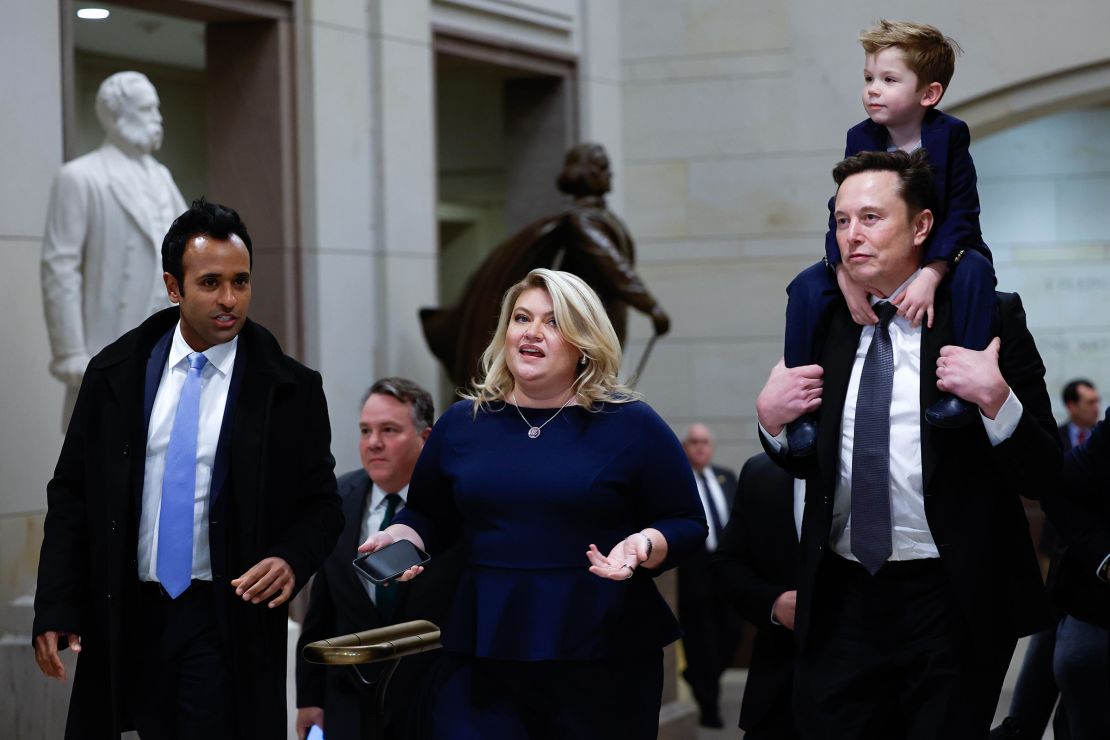
Almost three-quarters of Americans say they’re following news about the Trump transition at least somewhat closely, with just 7% saying they are not following at all closely. And most approve of what they see. Approval of Trump’s handling of the transition is significantly higher than in 2016 (55% now vs. 46% in 2016), while disapproval has held steady at 45%.
Trump’s approval on the transition still lags behind marks for other presidents heading into their first terms. Barack Obama led the pack at 79% in CNN’s first read on his transition approval rating in December 2008, while Biden at 66%, Bush at 65% and Clinton at 62% all received higher approval numbers than Trump.

Here, too, Trump has improved on his 2016 numbers with some groups that tilted broadly against him in his first term: 52% of women and 51% of people younger than 35 approve of his handling of the transition now; those figures were 39% and 42% respectively in 2016. A majority of people of color disapprove (56%), less negative than the 63% who disapproved in 2016. Approval is up across party lines as well, with approval ratings from Republicans (96% now) and Democrats (19%) each rising 7 points. Independents split 50-50 on Trump’s handling of the transition now, in 2016, they divided 44% approve to 43% disapprove, with 13% unsure.
The public is less accepting, though, of Biden’s decision in advance of Trump taking office to pardon his son Hunter Biden, who was convicted earlier this year of federal gun and tax crimes. Overall, 68% say they disapprove of the pardon and 32% approve. Democrats narrowly tilt toward approving of the pardon, 56% approve and 43% disapprove, while Republicans (89% disapprove) and independents (70% disapprove) are broadly negative about it.
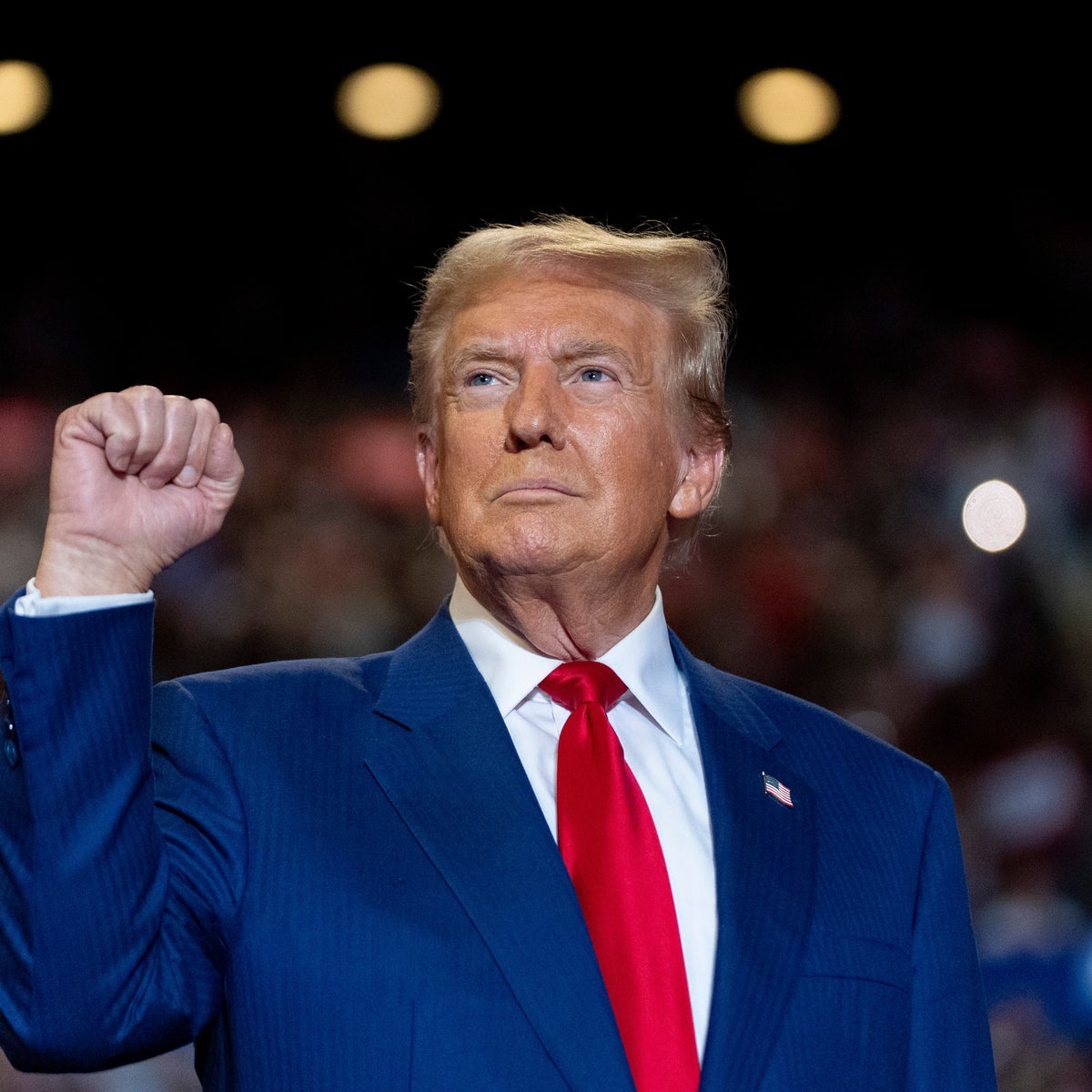
Trump’s election also prompted special counsel Jack Smith to drop federal criminal charges that were pending against Trump, as the Justice Department is barred from prosecuting sitting presidents. Most Americans (54%), say they disapprove of that decision, while 45% say they approve. There’s a wide partisan gap here: 90% of Republicans approve and 87% of Democrats disapprove. Independents break 36% approve to 64% disapprove.
The CNN Poll was conducted by SSRS from December 5-8 among a random national sample of 1,011 adults drawn from a probability-based panel. Surveys were either conducted online or by telephone with a live interviewer. Results among the full sample have a margin of sampling error of plus or minus 3.8 percentage points.
CEOs Optimistic About Trump Economy

America’s top chief executives are very optimistic President-elect Donald Trump will help create an era of low taxes and fewer regulations.
The Business Roundtable (BRT), a nonprofit lobbyist association based in Washington, D.C., released its fourth-quarter 2024 CEO Economic Outlook Survey, a composite index of CEO plans for spending, employment, and expectations for sales over the next six months.
The overall index rose 12 points from last quarter to 91, the highest level in more than two years and well above its historic average of 83. The increase is the result of CEOs reporting higher numbers across all three subindices (e.g., hiring, capital investment, sales).


CEOs projected 2.6% U.S. GDP growth for 2025.
“As we head into the new year, the Survey results reflect CEOs’ optimism about the U.S. economy in the coming months,” BRT Chair and Cisco CEO Chuck Robbins said.
“With Washington poised to consider measures that can protect and strengthen tax reform, enable a sensible regulatory environment, and drive investment and job creation, business leaders are energized by the opportunity to engage the incoming Administration and Congress on policies that can further fuel our economy.”
CEOs expressed optimism despite mainstream economists warning the economy will take a hit from some of Trump’s proposals, Axios reported.
In citing that BRT’s index “is well above its long-run average for the first time in nine quarters,” CEO Joshua Bolten said his organization will be working “with policymakers to support pro-growth provisions of the Tax Cuts and Jobs Act; scale back burdensome regulations; and expand high-standard trade agreements, while avoiding overly-broad tariffs that could stoke inflation and raise costs for American businesses and consumers.”

“Business Roundtable’s top priority is maintaining and strengthening the competitiveness of the American economy,” Bolten added.
A smaller share of executives plan to lay off workers in the months ahead, while roughly 38% plan to increase their workforce — up 4 points from last quarter, the index showed.
Also, 42% of CEOs said they plan to increase capital spending. That’s up from 35% from the third quarter.
A share of 79% of CEOs expect higher sales in the next six months, up from 71% who expected the same last quarter.

‘I’m more confident’ despite rise in US inflation

New Yorker Josh Kerben used to keep a careful eye on his petrol purchases, trying to stretch out his money by only partially filling the tank.
These days, however, he has been filling it to the top.
The decision is an indication of the increased financial breathing room being felt by millions of Americans, as petrol prices drop to their lowest level for three years, helping to contain rising living costs.
US inflation – the rate at which prices increase – rose slightly to 2.7% last month, official figures showed. Despite the increase, prices are rising far more slowly than in June 2022, when Russia’s invasion of Ukraine sparked turmoil in global oil markets and sent fuel prices soaring.

Though the progress has appeared in economic data for months, economic dissatisfaction has remained high, as price increases in other areas, such as housing, overshadowed the wider improvement.
The issue played a key role in the US election, helping Donald Trump win re-election to the White House last month.
Now, however, surveys suggest opinions about the economy are finally starting to brighten, driven in large part by increased confidence among supporters of Trump, Mr Kerben among them, after the former president’s election victory.
“Compared to two months ago, I would say I feel more confident,” the 36-year-old property manager said. “Hopefully Trump will do something.”
Ironically, the improvement in sentiment is arriving just as progress containing prices has appeared to stall.
The 2.7% inflation rate for November had been expected.

But it was up from 2.6% in October, marking the highest rate sinceJuly.
Gas prices – though down 8.1% compared with 2023 – rose 0.6% from October, while grocery prices jumped 0.5% over the month.
Prices of used cars, household furnishings and medical care also climbed.
The situation has raised questions about how Trump will deliver on his promises to lower prices for Americans – and what the US central bank, which wants to see an inflation rate of about 2%, should do next.
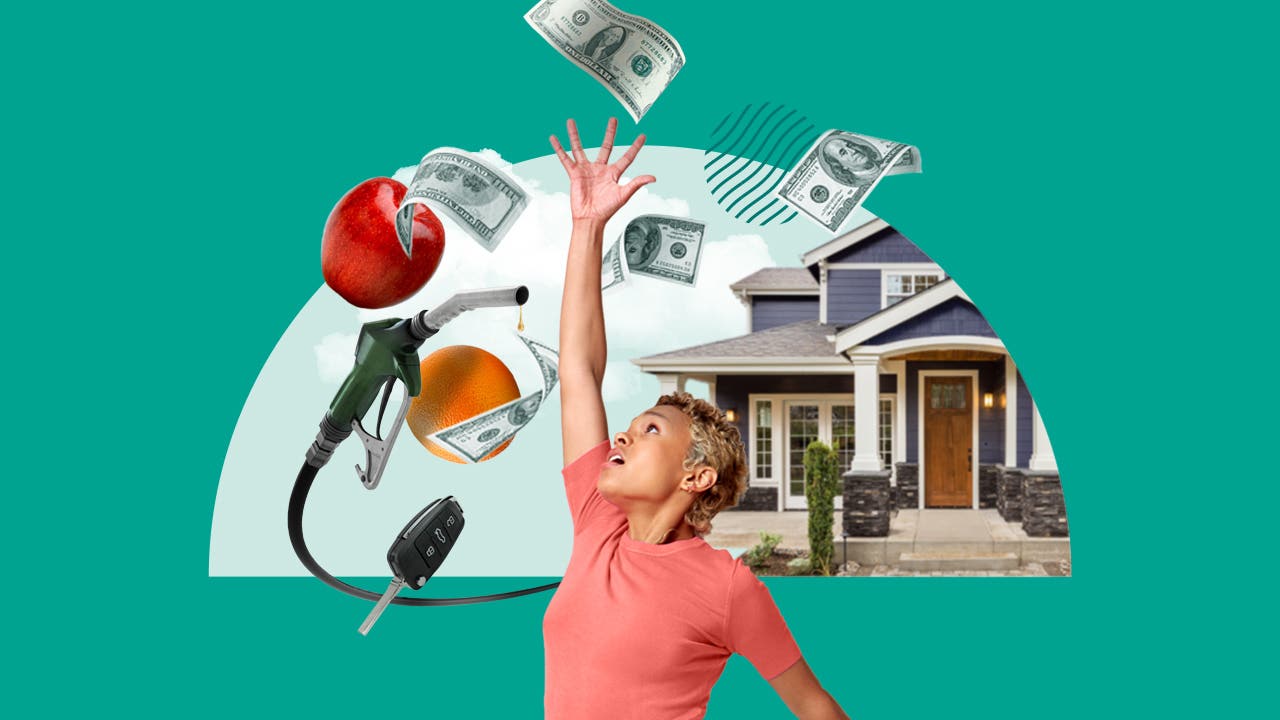
“Inflation has been coming steadily back into focus in the US,” said Lindsay James, investment strategist at Quilter Investors.
“This is due in part to the lack of progress that has been made over the last three months, but also because of concerns that higher US government spending plus the introduction of Trump’s tariffs could create a more inflationary backdrop.”
The US central bank lowered interest rates for the first time in more than four years in September, citing the progress stabilising prices.
Many analysts still expect officials to announce another cut to interest rates at their meeting this month, but they have warned that rates are likely to stay higher than previously expected next year unless price increases in areas outside of petrol start to ease more significantly.
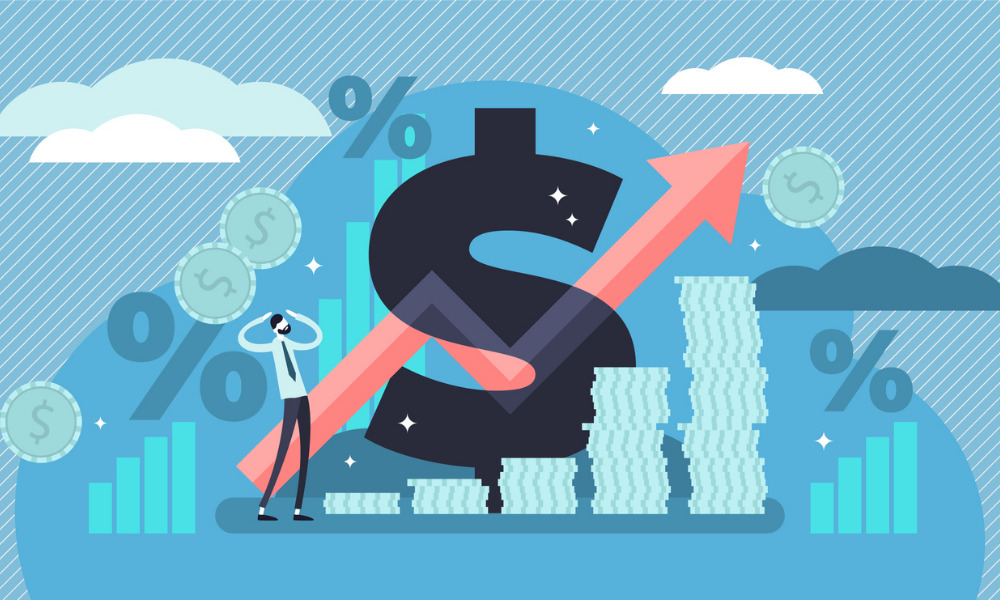
That’s a conclusion that will come as no surprise to Americans like Grier Bowen.
The 48-year-old was diagnosed with cancer in 2017 and now relies on disability payments from the government, which she said have not kept up as expenses shot up in recent years.
Though the situation has been helped by lower petrol prices, she said the savings were not enough to offset higher costs elsewhere.
“You may save here but you’ve got to now reallocate somewhere else,” she said.
Ms Bowen said she thought Trump would try to shake things up but she has yet to be convinced he will make a difference for the better.
“That’s yet to be determined,” she said.







:max_bytes(150000):strip_icc():focal(736x317:738x319)/maria-corina-machado-donald-trump-101025-ae6e5dd9fc324ce1bdcca7134e2fe0b9.jpg?w=1200&resize=1200,0&ssl=1)

:max_bytes(150000):strip_icc():focal(691x489:693x491)/Blake-Lively-Justin-Baldoni-Lawsuit-122924-bbcf025ee6b047a4971c5b043976f435.jpg?w=1200&resize=1200,0&ssl=1)

:max_bytes(150000):strip_icc():focal(999x0:1001x2)/princess-kate-middleton-032524-bcab22fdadef4bfbbd0d22911b561049.jpg?w=1200&resize=1200,0&ssl=1)










:max_bytes(150000):strip_icc():focal(762x596:764x598):format(webp)/Travis-Kelce-in-Taylor-Swift-Concert-110324-cf9ee70ff9474608b650117443acb466.jpg?w=1200&resize=1200,0&ssl=1)




:max_bytes(150000):strip_icc():focal(722x378:724x380):format(webp)/farmington-hills-deliver-baby-040924-2-ffd1c156ebc647d6977e889eb9405d6f.jpg?w=1200&resize=1200,0&ssl=1)










:max_bytes(150000):strip_icc()/KateLead-7b680bfb11ee419895fc7f5dee2860a7.jpg?w=1200&resize=1200,0&ssl=1)




